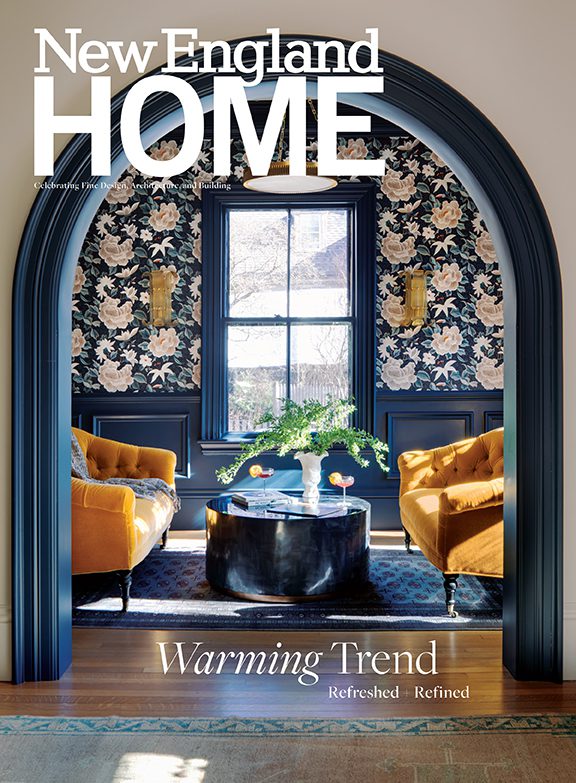Artist Pete Hocking
June 3, 2024
The Truro artist makes paintings about the divine.
Text by Nathaniel Reade
When Pete Hocking was a student at the Rhode Island School of Design, he had a big problem with painting: “I couldn’t find a way,” he says, “to feel that what I was doing was relevant.” So he instead went into public service and social justice. Fighting for AIDS research and teaching English to refugees felt far more worthwhile.
And then there was Provincetown.
Raised in Connecticut, Hocking had first seen the end of the Cape at age thirteen, when his parents plopped him one summer with an unpleasant aunt in Wellfleet. He would escape her via long bike rides, and he “fell deeply in love with this place. On some level I felt that it was home. There is something about standing in front of the Atlantic that is so spiritual. The transcendentalists tell us that the divine is in nature, and this is the place where that happened for me. It’s an extraordinary place.”
After two decades of community service and teaching at colleges, Hocking moved to Truro, helped found a creative community center in Provincetown, and began to share images about “the feeling of being here.”
He doesn’t paint plein air; instead he spends a lot of time standing in beautiful places on the seashore asking himself, “How does this feel? What am I seeing in terms of color? How does it smell?” Then he brings those feelings back to the studio and turns them into paintings.
Millions of people love Provincetown in large part because it is a safe haven for all flavors of diversity, queer culture, and creative expression. Those who buy Hocking’s paintings often do so because they’re beautiful (and deliberately affordable), but also because they evoke a sense of place. As one purchaser told him, “Provincetown is my lifeline. I can only be there two weeks each year, but it is the most important place in the world to me. Your painting is in my bedroom, it’s the first thing I see in the morning, and it gets me out of bed because it reminds me of a place I love.”
This, finally, feels relevant.
Editor’s note: To see more of Pete Hocking’s work, visit petehocking.com.
Share
![NEH-Logo_Black[1] NEH-Logo_Black[1]](https://b2915716.smushcdn.com/2915716/wp-content/uploads/2022/08/NEH-Logo_Black1-300x162.jpg?lossy=1&strip=1&webp=1)















You must be logged in to post a comment.